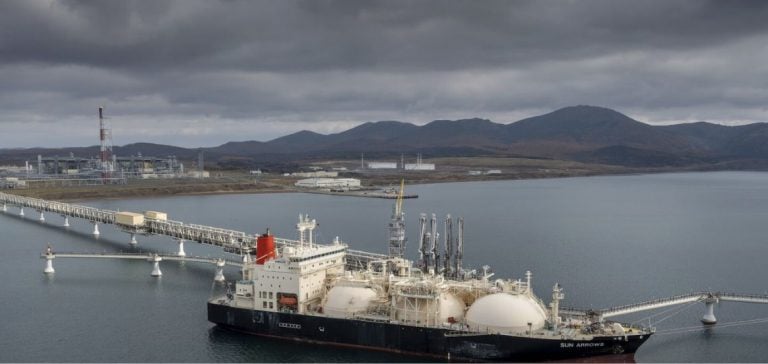Belgium, through its Energy Minister Tinne Van der Straeten, is calling for a common EU approach to stopping Russian LNG imports.
This plea aims to reinforce the sanctions already in place against the Russian energy sector, while relying on a solid legal basis to guarantee the effectiveness of the approach.
Since June, the EU has adopted its fourteenth sanctions package, including for the first time measures against transshipments of Russian LNG to non-European markets.
However, despite these measures, Europe has not yet imposed a total ban on LNG imports from Russia, which maintains an energy dependency deemed problematic by several member states, including Belgium.
Van der Straeten denounces this situation, pointing out that Europe indirectly continues to finance the conflict in Ukraine by remaining dependent on Russian LNG and other fossil fuels.
Sanctions against Russian LNG: an incomplete framework
The current sanctions mainly target Russian LNG logistics, prohibiting transshipment in European ports for deliveries to third-party markets.
This ban will come into force in March 2025, and should complicate Russian exports, particularly to Asia.
However, the EU has not yet implemented a complete embargo on Russian LNG imports.
Belgium, which still relies on Russian LNG for part of its supply, is campaigning for a wider and immediate ban at European level.
The Russian LNG sector is a key player in the global energy economy, notably through projects such as Yamal LNG, which supplies a large proportion of the LNG exported to Europe via ports such as Zeebrugge in Belgium.
Sanctions on transshipments are likely to affect Russian shipping routes, increasing logistical costs for Russia without directly disrupting LNG supplies to European countries.
Impact of measures on the European market
The European Commission is responsible for monitoring the impact of sanctions on LNG imports, and for reporting any significant developments by June 2025.
So far, the sanctions are mainly aimed at restricting Russia’s ability to use European infrastructure for transshipment, without totally banning the import of Russian LNG.
These measures are therefore unlikely to directly affect gas prices or supply within the European Union, according to expert analysis.
The global LNG market remains dynamic, and prices depend above all on global supply and demand.
In 2023, Russian LNG exports to the European Union reached 14.2 million tonnes, slightly up on 2022.
France, Spain and Belgium are the main importers, with 4.4 million, 3.9 million and 2.1 million tonnes respectively received in 2024.
The current sanctions have therefore not yet had a significant impact on these volumes, although the prospect of a complete embargo could force member states to diversify their LNG supplies.
Diversifying LNG supplies
While Belgium calls for tougher action against Russian LNG, other member states are already turning to new suppliers to limit their dependence on Russia.
Several gas infrastructure projects are underway to increase LNG import capacity from other parts of the world, including the USA, Qatar and African countries.
These initiatives aim to strengthen Europe’s energy security, while gradually reducing the share of imports from Russia.
At the same time, LNG prices continue to fluctuate due to uncertainties over global supply.
The spot price of LNG for delivery in Europe remains above $10/MMBtu, with a recent estimate of $12.18/MMBtu in September 2024.
These prices reflect tensions on the international market, but should not be directly affected by sanctions on Russian transshipments, which primarily concern logistics costs.
Belgium’s position in the European energy debate
Belgium is positioning itself as a key player in the defense of a common European strategy to end dependence on Russian LNG.
While the European Union is struggling to establish a total embargo, member states like Belgium are seeking to implement stricter measures at national level to support decarbonization of the gas sector and strengthen the continent’s energy resilience.
In the absence of a complete ban, pressure is mounting to accelerate efforts to diversify sources of supply.
Debates within the European Union are set to continue over the coming months, as sanctions on transshipments take effect and the European Commission publishes its assessment report in 2025.





















